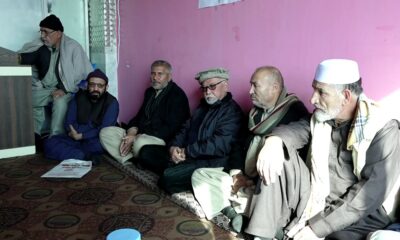Business
Efforts underway to safeguard Afghan women’s property rights
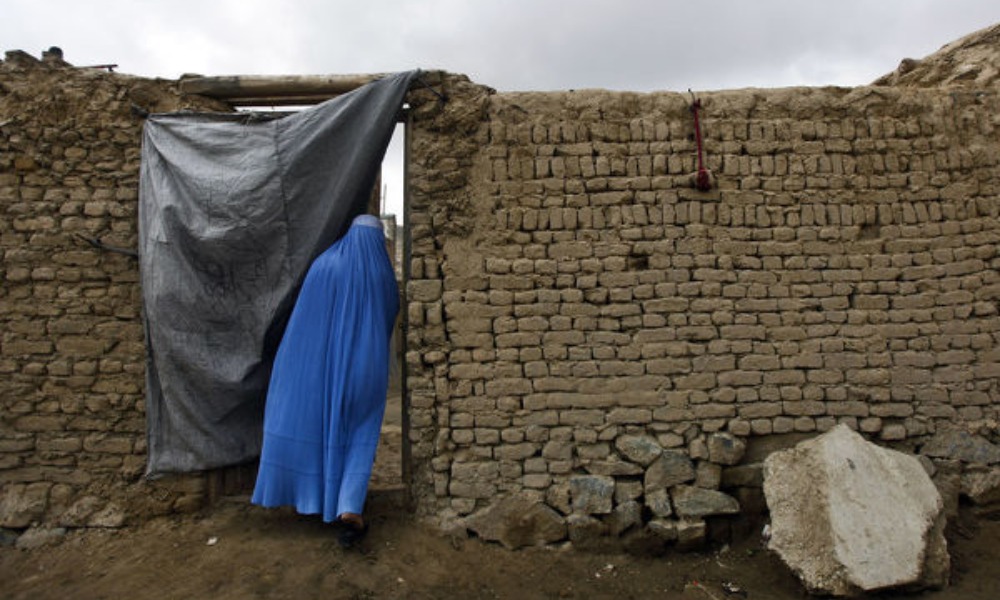
Through the Afghanistan Land Administration Project (ALASP) the government of Afghanistan has started distributing property Occupancy Certificates for land owners with priority for women.
World Bank reported that while Afghanistan's laws give women equal rights to own land and property, ignorance, weak law enforcement, and social norms have combined to deprive Afghan women of their property rights.
According to the article, experts estimate that less than five percent of land ownership documents in Afghanistan include the name of a female owner.
Given the social, economic, and cultural importance of property ownership, equitable access to land is key to empowering Afghan women.
In the article it stated that excluding women from owning land or property has led to their marginalization in political and economic spheres and limited their decision-making roles at home and in communities.
As such, equal access to land ownership is key to empowering Afghan women, the article stated.
The Ministry of Urban Development and Land (MUDL) however has reportedly been improving land administration and promoting better access to registration services, especially for women.
Supported by a number of agencies, and financed by the World Bank, this project has so far resulted in MUDL having issued 34,370 Occupancy Certificates (OC) and more than half include a woman's name.
These initiatives have helped many Afghan women acquire certificates that prove their rightful ownership and protect them from eviction, encroachment, or dispute. The legal documents also guarantee they can pass on their property to their children and shield them from homelessness, the World Bank article stated.
The article also stated that consistent with the new legal framework, co-titling for occupants of state land is mandatory, and husbands are now required to include their wives' names on the certificates.
In addition, there is also now dedicated help desks in eight provinces to support women seeking an Occupation Certificate, encourage female enrollment, and facilitate co-registration.
Business
Daily truck clearances at Torkham drop from 400-500 to 5-10
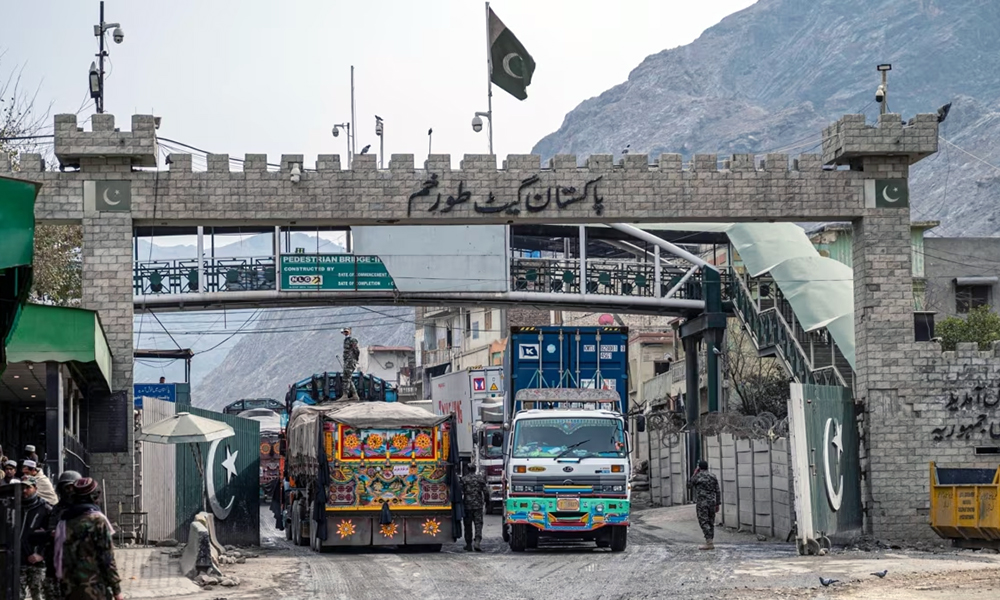
Pakistan’s Sarhad Chamber of Commerce and Industry (SCCI) has said that daily truck clearances at Torkham crossing have declined from 400-500 to 5-10.
SCCI President Fazal Muqeem Khan said this at the signing ceremony of a memorandum of understanding (MoU) with the Pakistan-Afghanistan Joint Chamber of Commerce and Industry to promote bilateral trade and cooperation.
He said the volume of trade between Pakistan and Afghanistan had fallen from $3 billion to $1 billion annually.
Fazal Muqeem also highlighted the adverse impact of the 2% Infrastructure Development Cess (IDC) imposed by the Khyber-Pakhtunkhwa government on trade and transit.
Business
Turkish scholars, charity officials assess investment prospects in Afghanistan
Officials pledged to encourage Turkish investors to explore and capitalize on investment opportunities in Afghanistan
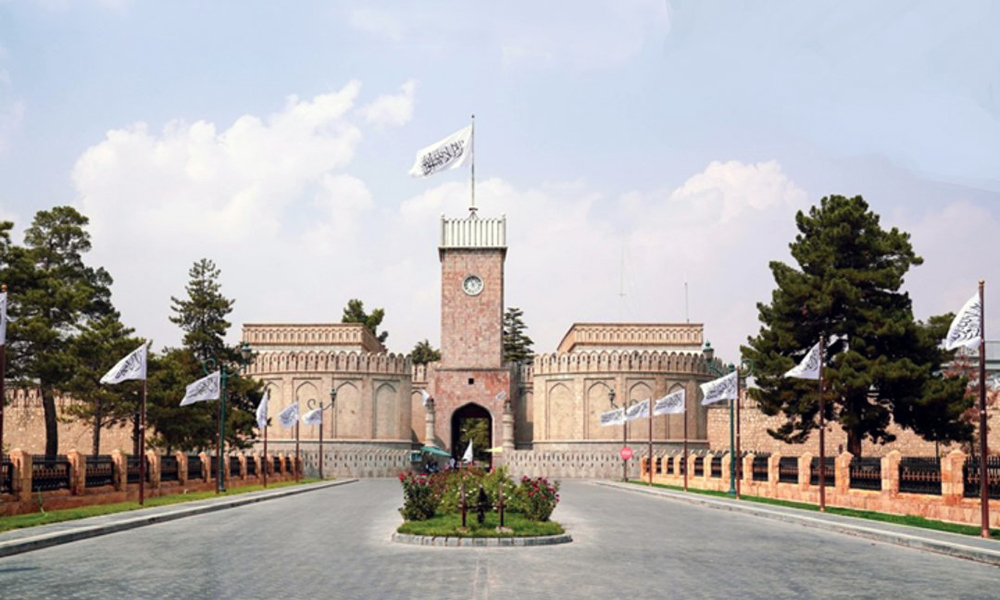
Afghanistan’s Acting Minister of Energy and Water, Mullah Abdul Latif Mansoor, met with a delegation of Turkish scholars and officials from the Adif Charity Foundation on Tuesday to discuss various political, religious, and social issues.
According to the Ministry of Energy and Water, Mullah Mansoor praised Adif’s humanitarian efforts in Afghanistan and highlighted the country’s ample resources for energy production.
He emphasized that Afghanistan currently offers a favorable environment for investment in all sectors, assuring the Turkish delegation of the Islamic Emirate’s commitment to ensuring the safety and security of investors and their assets.
In response, Adif officials pledged to encourage Turkish investors to explore and capitalize on investment opportunities in Afghanistan, signaling a potential boost in economic and developmental cooperation between the two nations.
Business
Uzbek envoy to Pakistan discusses Trans-Afghan Railway project with Pakistani minister
The Trans-Afghan Railway project is expected to serve as a powerful stimulus for trade and economic integration among numerous countries in the region
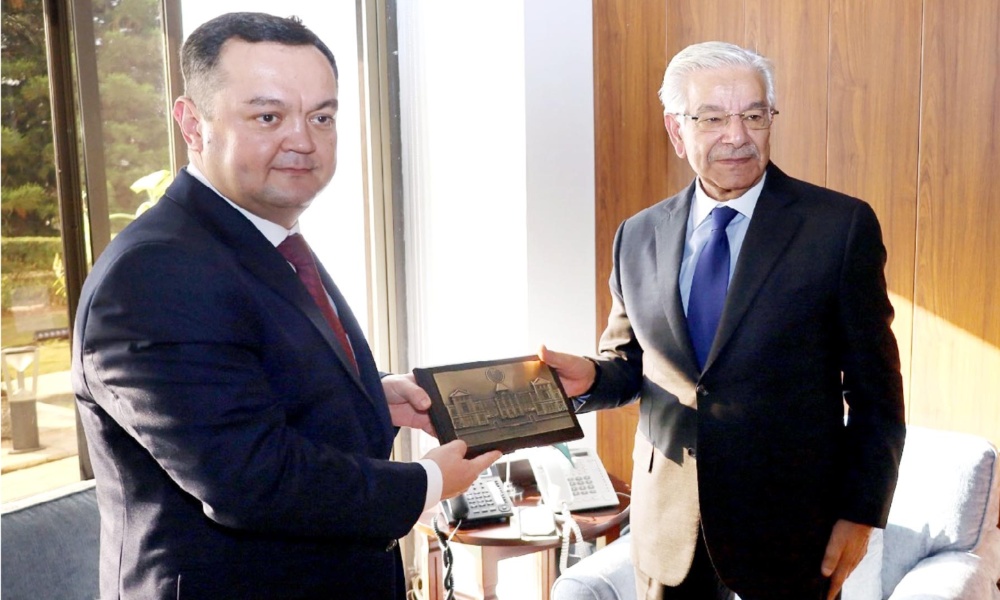
Regional connectivity projects including the Termez-Kabul railway line, the Trans-Afghan Railway, and the multimodal Belarus-Russia-Kazakhstan-Uzbekistan-Afghanistan-Pakistan transport corridor, are key to the region’s success, the Ambassador of Uzbekistan to Pakistan Alisher Tukhtayev said during a meeting with Pakistan’s Defense Minister Khawaja Asif on Friday.
The two officials discussed a range of issues as well as coordinating efforts to ensure stability and deepen economic integration in the region.
Asif however pointed out that Tashkent has become an important hub for regional cooperation, Pakistani media reported Monday.
Special focus was given to the implementation of the Trans-Afghan Railway project, which is expected to serve as a powerful stimulus for trade-economic integration to numerous countries.
The ambassador said the governments of Uzbekistan, Pakistan, and Afghanistan are actively cooperating in the implementation of joint economic and infrastructure projects and one of them is the construction of the Trans-Afghan Railway.
He said the “Termez-Kabul-Peshawar” railway project plays an important role in restoring ties of regional connectivity between Central and South Asia.
He added that once the project is launched, the volume of trade will increase significantly and shipping costs will decrease.
Tukhtayev said the railway connectivity will contribute hugely to regional stability and overall prosperity by aiding Afghanistan’s economic recovery.
He also said the project will facilitate the delivery of Uzbek goods to world markets through Pakistani ports and will open up a new route for Pakistan to export its products to Central Asian, and European markets.
According to him, the Trans-Afghan railway will be able to carry up to 20 million tons of cargo per year, and transportation costs will decrease by 30-35% and timing of deliveries will be cut from two weeks to three to four days.
He also stated that the international cooperation project on the development of the multimodal transport corridor Belarus-Russia-Kazakhstan-Uzbekistan-Afghanistan–Pakistan is being actively promoted.
[embed]https://youtu.be/2Osh4f_dA5Y[/embed]
-

 International Sports5 days ago
International Sports5 days agoWinners of The Best FIFA Football Awards 2024 to be revealed Dec. 17
-

 Sport4 days ago
Sport4 days agoATN once again seals deal to broadcast upcoming IPL across Afghanistan
-

 Regional4 days ago
Regional4 days agoBomb kills chief of Russian nuclear protection forces in Moscow
-

 Sport4 days ago
Sport4 days agoLanka T10: All three matches abandoned due to rain
-

 World4 days ago
World4 days agoAt least 100,000 bodies in Syrian mass grave, US advocacy group head says
-

 Latest News4 days ago
Latest News4 days agoIndia hoping to import coal and marble from Afghanistan
-

 Latest News4 days ago
Latest News4 days agoTrump says he would have pulled out of Afghanistan with ‘dignity and strength’
-

 Latest News4 days ago
Latest News4 days agoFuel prices rise in Herat as winter approaches








